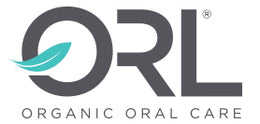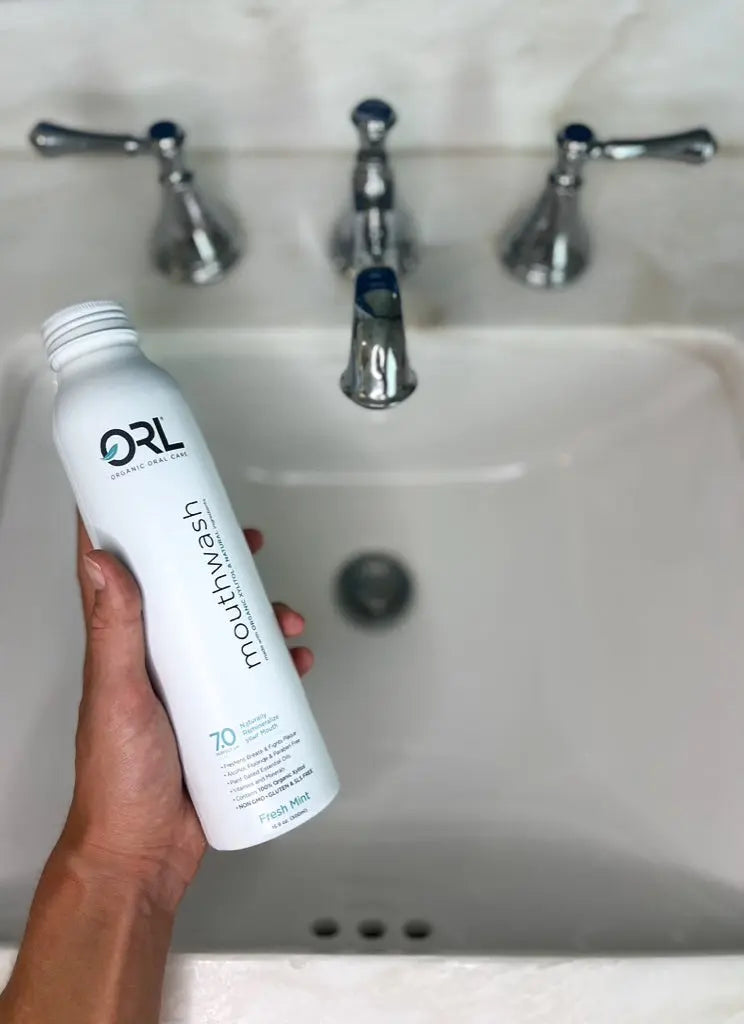As more people are becoming aware of the health benefits of natural products and the absence of harmful ingredients, natural mouthwash can be a valuable addition to your oral care routine, complementing toothpaste for full oral care coverage. Here are some potential benefits of using natural mouthwash:
1) Fighting Bad Bacteria:
- Antibacterial Properties: Many natural mouthwashes contain ingredients with antibacterial properties such as organic xylitol, tea tree oil, eucalyptus oil, and essential oils like peppermint and cinnamon. These can help combat harmful bacteria in the mouth, reducing the risk of cavities and gum disease. The better mouthwashes will also provide additional benefits by penetrating below your gum line too. This helps support stronger roots, dentin and plaque reduction.
- Natural Ingredients: Ingredients like mint, aloe vera, and other essential oils provide a natural and pleasant flavor, helping to freshen breath without the use of artificial sweeteners or alcohol. In fact many of these essential oils are anti-fungal and antibacterial too. They also help promote a perfect 7.0 pH balance, which allows your mouth to naturally remineralize and helps promote greater saliva production. Your saliva naturally contains enzymes and calcium to improve your oral health and breath too.
- Hydration: Some natural mouthwashes include ingredients that can help maintain moisture in the mouth. Dry mouth (also known as Xerostomia) can contribute to bad breath and increase the risk of dental issues, so keeping the mouth moist to naturally produce the benefits saliva offers is essential for overall oral health.
- Anti-Inflammatory Effects: Natural mouthwashes may have anti-inflammatory effects, which can help reduce gingivitis and inflammation of the gums. Ingredients like aloe vera and chamomile may contribute to these effects. Being absent of alcohol helps promote the elimination of good and strong bacteria while eliminating the bad bacteria in your mouth.
- Alcohol-Free Formulas: Many natural mouthwashes are alcohol-free, which can be gentler on the mouth and avoid the burning sensation that some people experience with alcohol-based mouthwashes. This can be especially beneficial for individuals with sensitive gums or mouth sores. As stated previously, alcohol will eliminate the bad bacteria residing in your mouth, but at the same time it will eliminate the good and protective bacteria too.
- Supplementing Brushing and Flossing: While toothpaste and floss are crucial for removing plaque and debris from teeth, a natural mouthwash can reach areas that may be difficult to access with a toothbrush or floss, providing complete absorption and a more comprehensive approach to oral care.
- Avoiding Artificial Additives: Natural mouthwashes often steer clear of artificial colors, flavors, and sweeteners, reducing the exposure to potentially harmful chemicals that most commercial mouthwashes may contain. These harmful chemicals and ingredients include calcium disodium EDTA, alcohol, fluoride and glycerin.
- Aromatherapy: Many consumers do not realize that the natural essential oils in some mouthwashes can contribute to a pleasant aroma, providing a sensory element to the oral care routine and making it a more enjoyable experience. A similar experience with the thickness or viscosity of the natural formulations…it lingers and coats your mouth.
It's important to note that while natural mouthwashes can offer these benefits, they should not be a substitute for regular brushing and flossing. Additionally, individual responses to natural ingredients can vary, so it's advisable to test a small amount initially to ensure compatibility with personal preferences and sensitivities. Always consult with your dentist or healthcare professional for personalized oral care advice.



